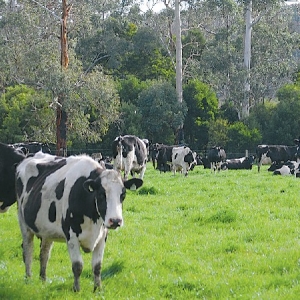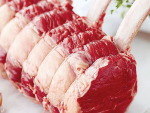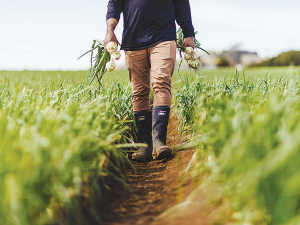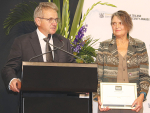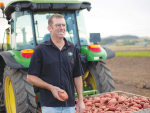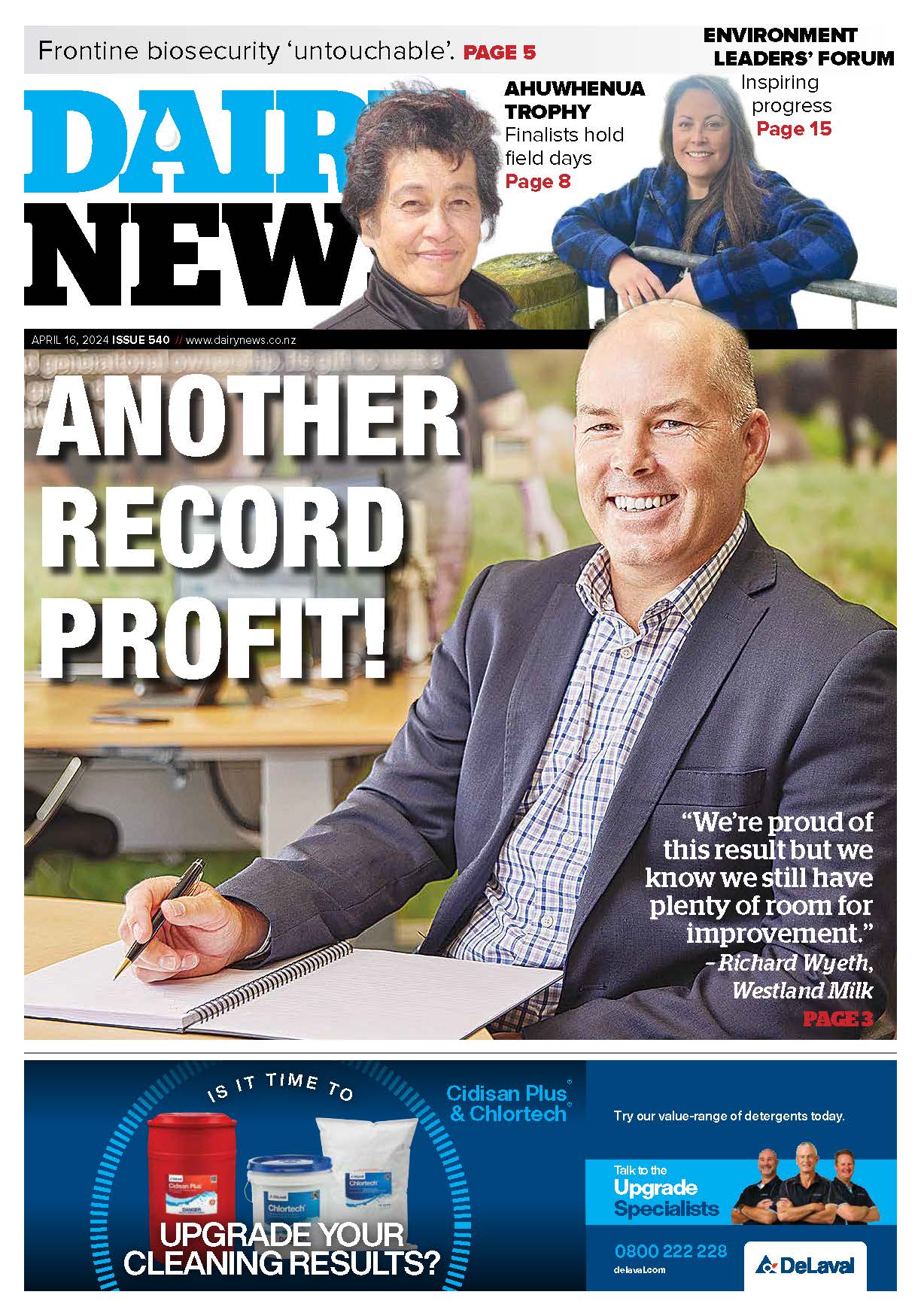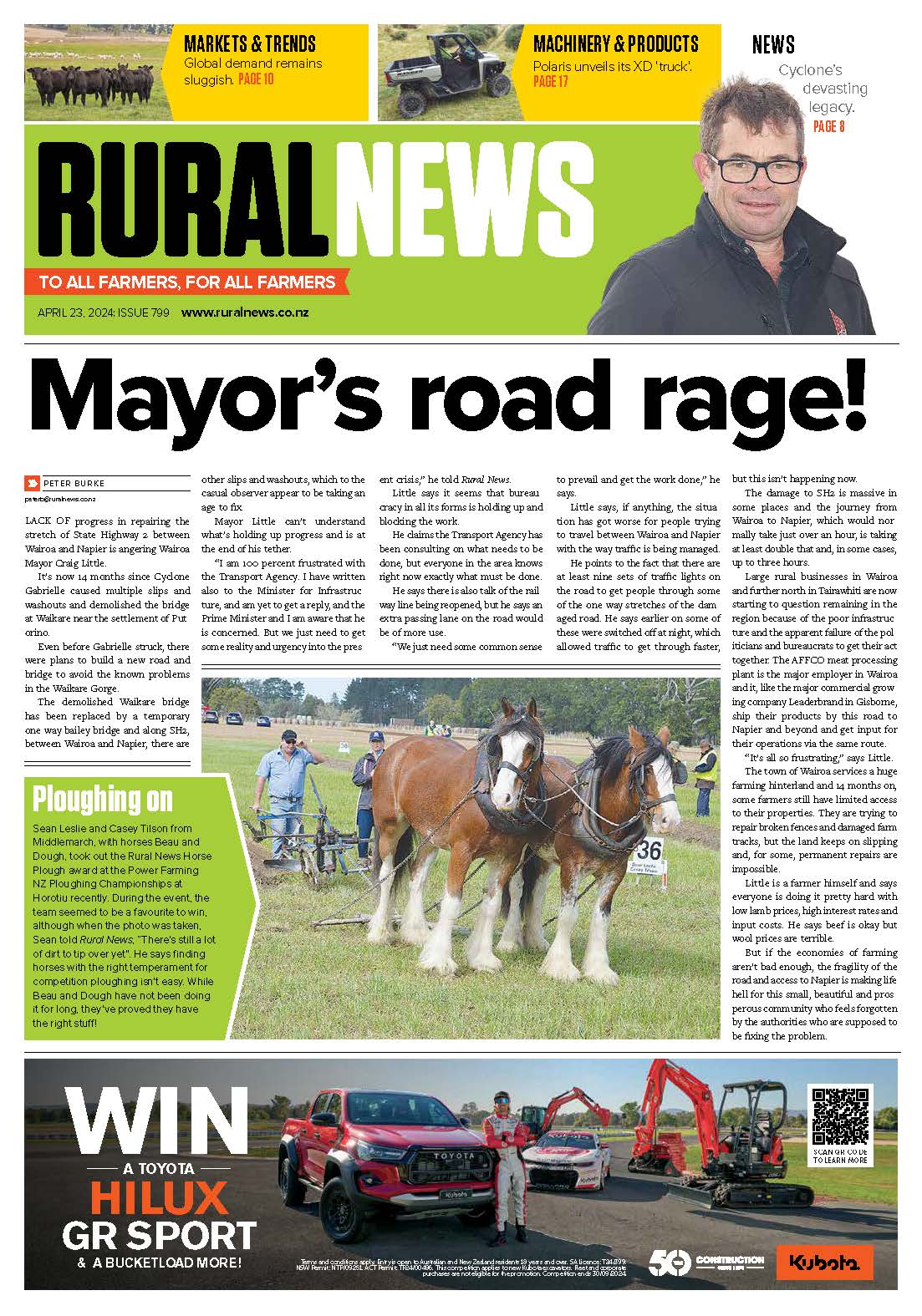New Zealand farmers are reporting a significantly improved outlook for the year ahead, with a big rally recorded in the latest quarterly Rabobank Rural Confidence Survey.
The survey – completed late last month – has showed more than half of the country's farmers (54%) expect the rural economy to improve over the next 12 months. This compared with just 28% with that expectation in the previous survey.
Just 8% of those surveyed expected conditions to worsen (down from 29% in the past quarter).
Rabobank New Zealand chief executive Ben Russell says a number of factors were helping to lift farmer spirits, but particularly higher dairy commodity prices and a looming supply shortage in lamb and beef following the recent drought.
"The lower dollar has also been another cause for optimism, with 27% of farmers who expected conditions to improve nominating the falling dollar as the reason," he said.
Russell says many farmers would also be "breathing a sigh of relief" that the major difficulties of the past 12 months were behind them and feeling that conditions could only improve on what they had been.
"The severe drought that had been experienced in many parts of the country, particularly in the North Island, had really knocked farmer confidence, as had the consistently high currency and overall generally difficult economic conditions," he says. "Many are now taking cheer that the worst of these conditions are now behind them."
Dairy farmers led the optimism in the survey, with 61% expecting the rural economy to improve in the coming 12 months.
"The forecast high milk price for 2013/14 due to higher dairy commodity prices was of course a big contributor to optimism among dairy farmers," Russell says. "The good autumn conditions had also enabled a swift recovery from the drought for most farms and means spring milk production is unlikely to suffer any significant negative impact."
Sheep and beef producers and mixed farmers also had a more positive outlook. A total of 52% of sheep and beef farmers expected an improvement in the agricultural economy, up from the 24% who had that expectation in the past survey.
Russell says the looming shortage of lamb and beef production in the country following the 2013 summer drought was fuelling optimism among beef and sheep farmers, as this is likely to be reflected in higher farm gate prices through the 2013/14 season.
"Sheep flocks around the world have contracted again and this will tighten lamb supply globally over the coming year," he says.
There was also increased optimism seen among horticulturalists, with 41% expecting the rural economy to improve, up from 18% in the previous quarter. Russell says positive sentiment in this sector was likely to have been driven by the easing of the New Zealand dollar, with most of the main horticultural crops exported.
New Zealand farmers were also increasingly positive about the prospects of their own farm businesses, the latest Rabobank survey showed.
A total of 55% of farmers surveyed expected improved performance of their own farming enterprises in the next year, compared with 42% who had that expectation three months earlier in the previous survey. Only 10% expected their business performance to worsen (down from 21 per cent).
Again dairy farmers were most positive about their own business outlook, with 72% expecting their farm business performance to improve.
"This clearly reflects the forecast 2013/14 milk price at 7kgMS, which is more than 20% higher than the prior season's price," Russell says.
The improved confidence levels also saw New Zealand's farmers intending to invest more in their businesses. A total of 32% expected to increase investment in the next 12 months (up from 26% in the previous quarter). Only 7% indicated they would reduce investment, compared with 14% last quarter.
Russell says this represented the highest investment intentions among farmers since December 2011.
It was not all good news in the survey however, with business viability remaining an issue for sheep and beef farmers, despite their improved optimism about the agricultural economy.
Of the sheep and beef farmers surveyed, 53% considered themselves just viable or unviable. This was slightly higher than the number with that view last quarter – 50%.
"That said, the survey did show that approximately a quarter of sheep and beef farmers (26%) expect to increase the total investment in their farming business and 85% expected to increase or maintain their stock numbers over the coming year," Russell says.
Not surprisingly, dairy farmers were more confident about their business viability, with 73% rating their businesses viable or easily viable. "A total of 41% of dairy producers also expected to increase investment in their farm businesses and 91% expected to maintain or increase stock numbers."





